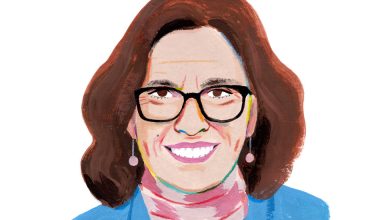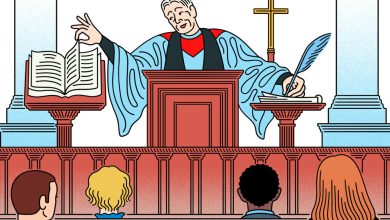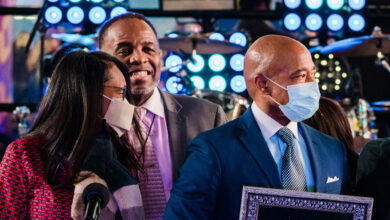Mark Fleischman, the Last Impresario of Studio 54, Dies at 82

Mark Fleischman, who presided over the raucous, drug-crazed denouement of the celebrity-studded Manhattan disco Studio 54 in the early 1980s, died on Wednesday in Switzerland. He was 82.
His wife, Mimi, said the cause was assisted suicide.
Since 2016, Mr. Fleishman had been hobbled by an unidentified degenerative disease that eventually left him unable to walk or dress himself and impaired his speech. He died in a clinic near Zurich operated by Dignitas, a nonprofit organization that helps people suffering from terminal illnesses or severe physical conditions end their lives.
“At 82, I decided, why keep it a secret? I am not afraid of anything. Not even death,” he said in an interview with The New York Post last month in which he described his decision to go to Dignitas.
“I am taking a gentle way out,” he said.
Mr. Fleischman, a hotelier and restaurateur, bought Studio 54 from its founders, the former college classmates Steve Rubell and Ian Schrager, who had alchemized sex, drugs and celebrity to transform a former television studio on West 54th Street into a legendary disco. They opened it in 1977 and ran it until 1980, when they were convicted and imprisoned for tax evasion and Mr. Fleischman took over.
“The reality is that I was thoroughly seduced by the idea of controlling the world’s most important nightclub,” Mr. Fleischman wrote in a memoir, “Inside Studio 54” (2017), “and I proceeded headlong and recklessly toward that end.”
“I became the owner of Studio 54 in 1980,” he wrote, “and from the very first night we opened, in 1981, I was swept up in a world of celebrities, drugs, power and sex. Studio 54 was part of a journey that I was meant to take and one that nearly killed me.”
Three years after reopening the disco, with the onset of AIDS and the influx of crack cocaine, the novelty was wearing thin and Mr. Fleischman, the self-described “ringleader” of the all-night circus, was worn out. He checked himself into the Betty Ford Center in Rancho Mirage, Calif., for drug rehab and sold the club in 1984. (The new owners shuttered it two years later.)
Mark Harvey Fleischman was born on Feb. 1, 1940, in Manhattan and grew up in Great Neck, on Long Island. His father, Martin, a Romanian immigrant, was a furrier and hotelier. His mother, Sylvia (Zausner) Fleischman, was a homemaker.
Mark was 10 when his parents took him to theCopacabana nightclub in Manhattan. “It colored my world forever,” he wrote.
After graduating from Great Neck High School, he earned a degree from Cornell University’s School of Hotel Administration in 1962. He served two years in the Navy managing an officers’ club and, with a loan from his father, bought the Forest Hills Inn, a historic early-20th-century hotel in Queens.
He also operated the Manhattan restaurants A Quiet Little Table in the Corner and Robata, as well as ski resorts in Vermont.
Mr. Fleischman later opened Tatou, a supper club in Manhattan, whose success led him to establish branches in Los Angeles, Las Vegas, Tokyo and Aspen, Colo.
He subsequently moved to California. He and Daniel Fitzgerald operated the Century Club (a disco with multiple restaurants) in Los Angeles beginning in the 1990s; later, with his wife, he opened a number of fitness clubs. The couple lived in Marina Del Ray, Calif.
In addition to his wife, Mr. Fleischman is survived by a daughter, Hilary, from his first marriage; two stepchildren, Adam and Juliet; and a grandson. His first marriage, to Laurie Lister, ended in divorce.





